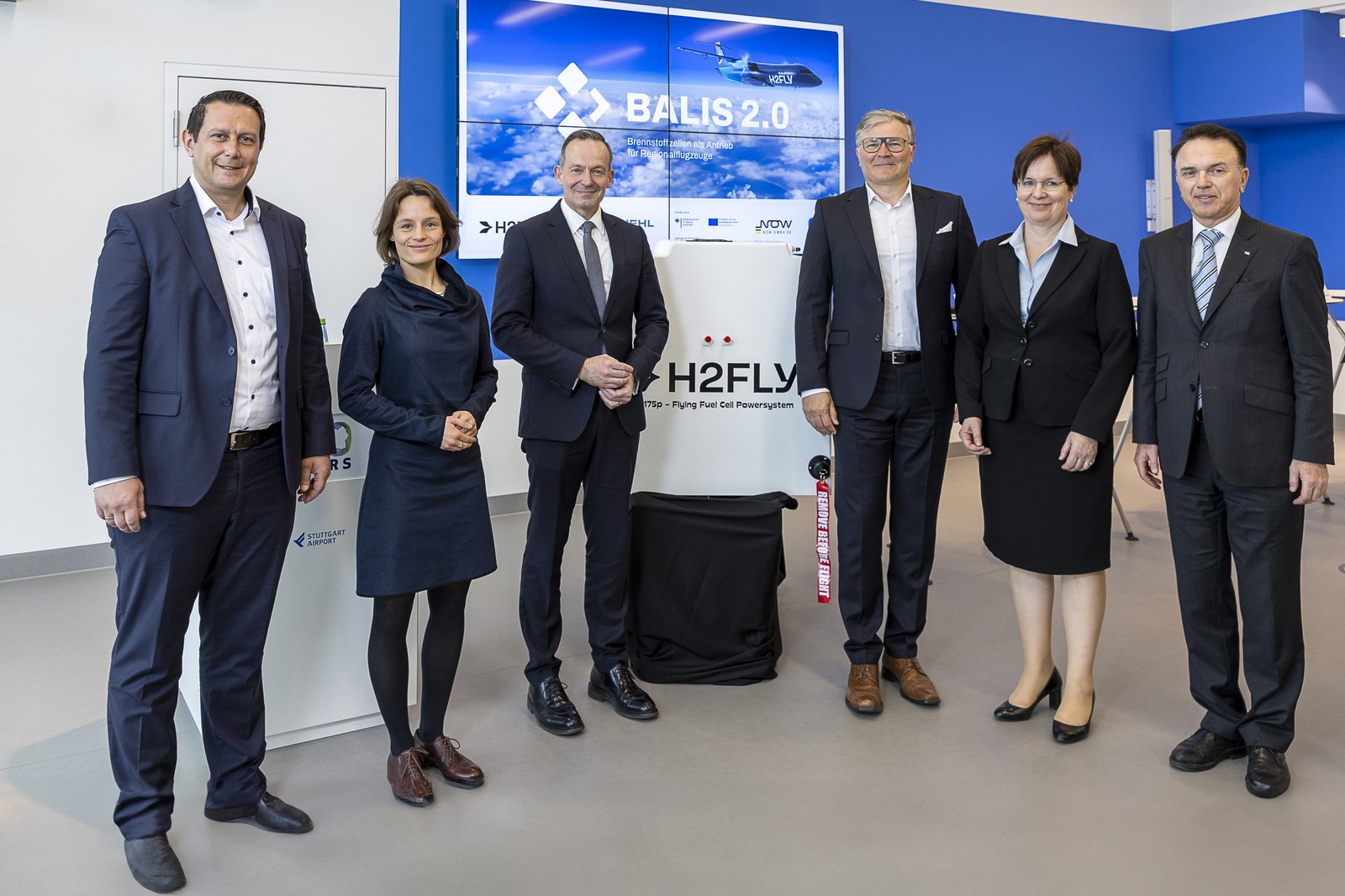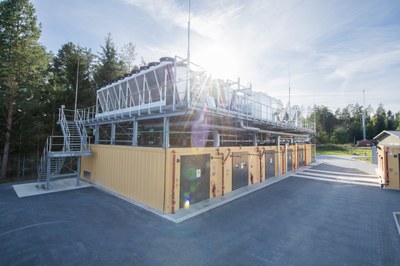Hydrogen fuel cell technology for emission-free mobility: BALIS 2.0

- DLR and the project participants are developing and testing a high-performance fuel cell system and creating the basis for the operation of emission-free regional aircraft
- The Federal Ministry for Digital and Transport Affairs is funding the project with funds totalling EUR 9.3 million
- The fuel cell drive is to be tested on the ground for the first time in 2024
- Focus areas: Mobility of the future, aviation, sustainability, fuel cells, hydrogen
The Federal Ministry for Digital and Transport Affairs (BMDV) officially launched the BALIS 2.0 project on 6 May 2024. Dr Volker Wissing, Federal Minister for Digital and Transport Affairs, handed over the funding decision for the further development of fuel cell drives for regional aircraft to the consortium at a meeting at Stuttgart Airport.
The BALIS 2.0 project is developing and testing a high-performance fuel cell module with an output of 350 kW that is suitable for aviation. This basic module forms the basis for developing a megawatt propulsion system. This will make it possible to power 40-80-seater regional aircraft with zero emissions using hydrogen.
BALIS 2.0 will receive EUR 9.3 million in funding from the BMDV between 2024 and 2026 and is coordinated by the Nationale Organisation Wasserstoff- und Brennstoffzellentechnologie (National Organisation Hydrogen and Fuel Cell Technology, NOW GmbH) and the Projektträger Jülich (PtJ). The project participants are H2FLY Gmb, DLR Institute of Engineering Thermodynamics, Diehl Aerospace GmbH].

In the BALIS test environment, the German Aerospace Center (DLR), under the project management of H2FLY GmbH, will test the coupling behaviour of fuel cell systems in the megawatt power class with an electric drive and carry out further investigations in order to optimise overall system operation.
With the Balis 2.0 project, DLR is setting another important milestone in the use of new technologies on the road to climate-friendly mobility. Thanks to its own BALIS research infrastructure, powertrains in the megawatt range can be tested in an application-oriented manner.
The first ground tests of the DLR fuel cell system are planned for this year in the BALIS test field in Empfingen.
Kontakt
Dr. Syed Asif Ansar
Dipl.-Kff. Sabine Winterfeld
